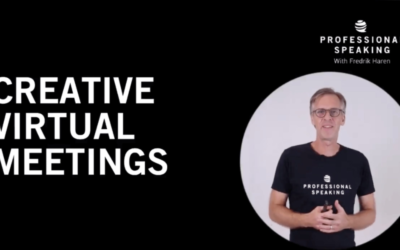
May 7, 2015 in Singapore.
This is an email I received in my inbox today, 7th of May 2015, asking me if I can deliver a speech in Europe for a regional conference on (wait for it…) May 19th!
“Let me shortly introduce myself. My name is (Name of Client) and I am working for (Name of Company).
We are a leading insurance broker and risk advisor being active in more than 100 countries.
Once a year we have a regional event for our European and Middle East/Africa managers – in total around 100 colleagues. For our joint dinner on May 19, we are looking for an innovating, motivating and inspiring speaker.
Kindly ask you to let us know if you would be available and interested to join our event as a speaker for dinner on May 19th.
Many thanks in advance and best regards from Vienna.”
Here is a company planning an international conference for hundreds of people and they are booking their speaker for this conference less than two weeks (!) before the event.
The interesting thing is that this is becoming more and more common. When I started as a professional speaker 20 years ago, companies would book speakers months in advance, and sure, some companies and event organisers still book way in advance. But overall, companies are now booking with much shorter time frame.
Not long ago, I was booked with a one week time frame where the CEO had decided 8 (!) days before the conference happened that he wanted to have an Asian Regional Conference.
On the first day of the conference, the CEO stood up and said: “We normally plan conferences months in advance, but I wanted to show you that we can do things much faster, and we HAVE to do things much faster in the future to be able to survive.”
So to prove that the company could move much faster than they thought it could, he had forced them to do a conference in a week.
Not all CEOs are that extreme, but planning of conferences has for sure become quicker.
What does this mean for a speaker?
It means that we have to understand that one of the reasons companies decide so late which speaker they should bring in is that the theme that they want to cover in their conference might have also recently changed. Be sure to have an extra briefing call (or meeting) the day before the speech to be up-to-date with the latest developments in the company so you know what the company is going through right now.
It also means that we have to be more flexible with our own planning, and that we should not stress out if our calendar has some empty slots in it a few months from now.
Lesson: The business of professional speaking has more and more become a “just-in-time-world” as the world of business is changing the way they plan their conferences. Clients want their conferences to be current and relevant – and in an ever faster changing business environment, that means they might wait to book a speaker until the very end to make sure the speaker fits with the theme of the conference. As speakers, we need to understand the rationale behind this behaviour.




